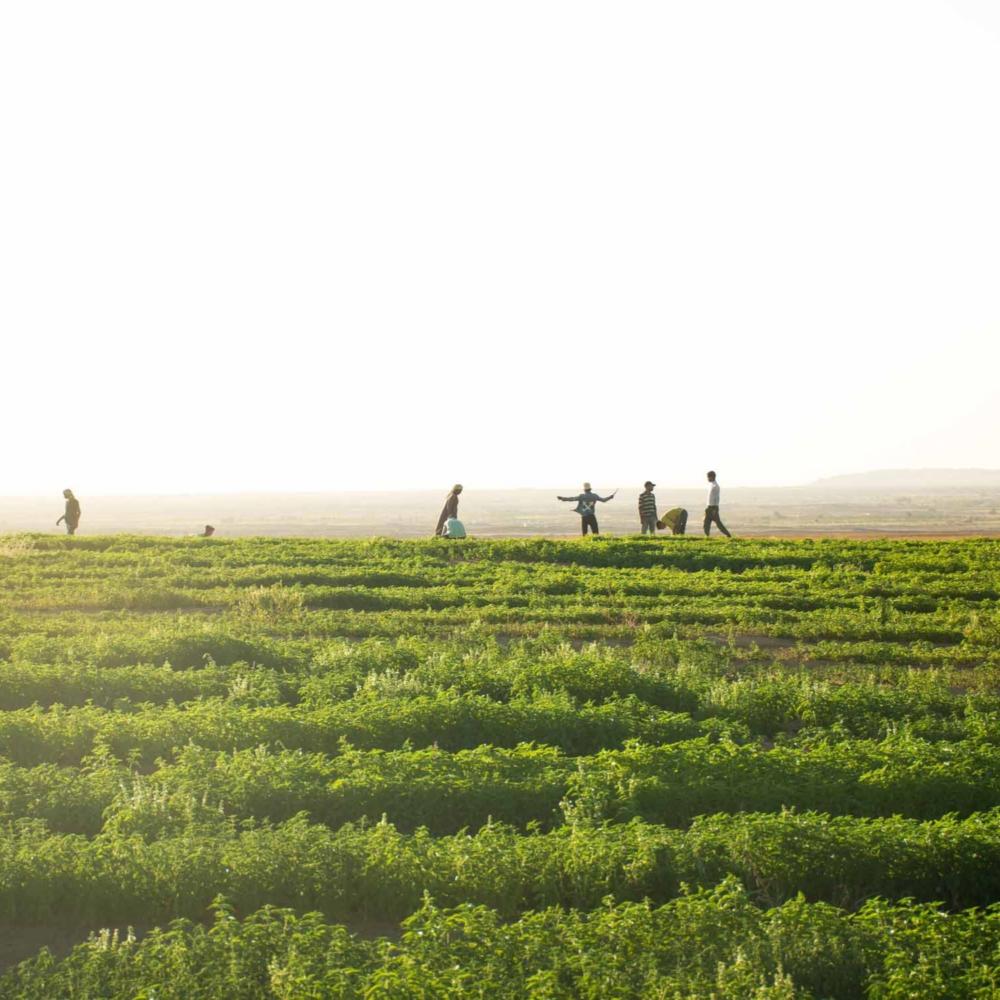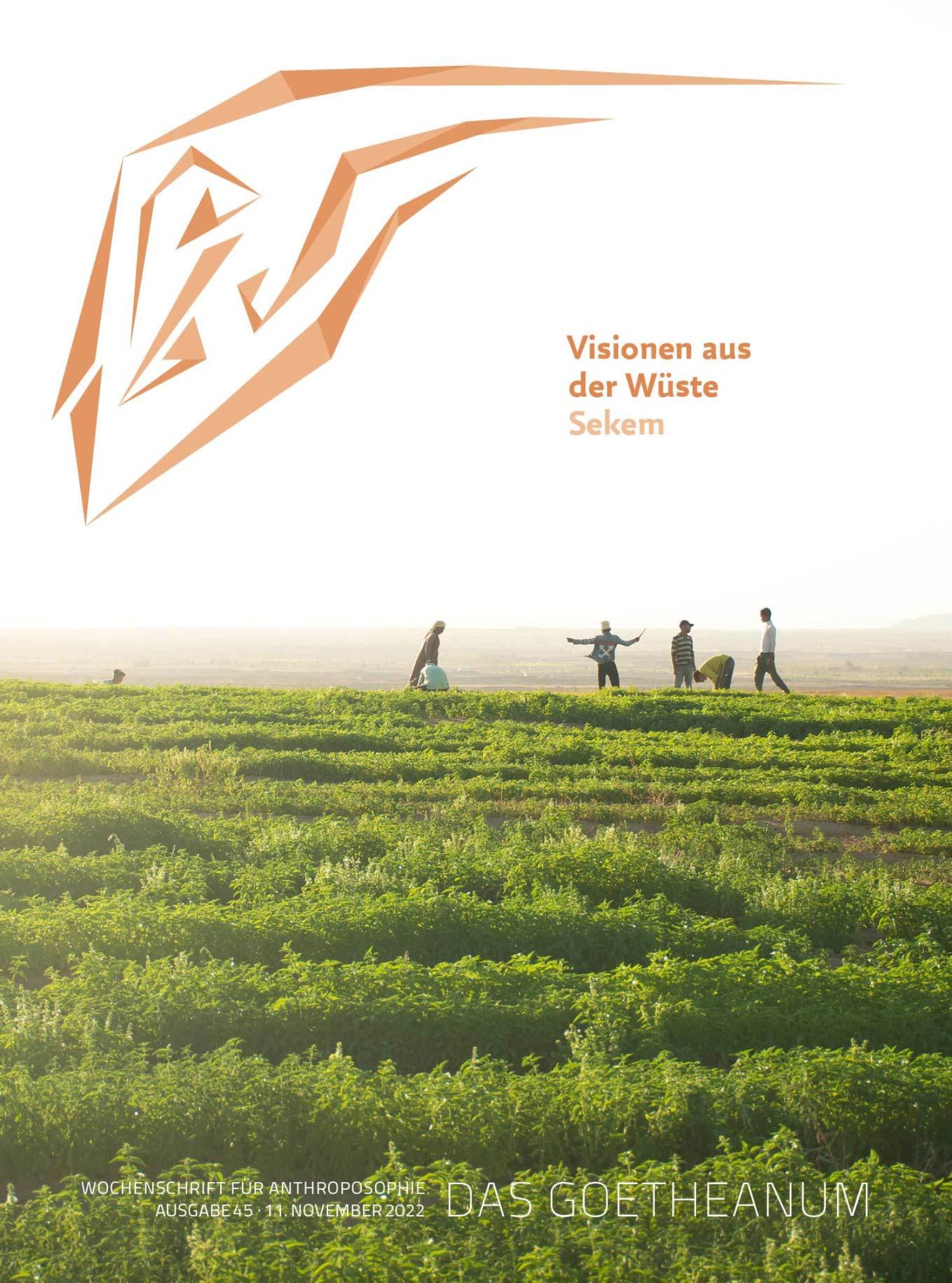Visions from the Desert
Andrea Valdinoci was in Sekem, Egypt in early October as a board member of the Evidence Foundation. Impressed by the power of initiative of the place and the people, he spoke with Helmy Abouleish about Sekem’s vision. Here the goal is not only Biodynamic Agriculture, but systemic change and transformation of our consciousness so that the coexistence of human beings and nature becomes possible.
Andrea Valdinoci I am very touched by what you have built in Sekem and Wahat. Seeing how Mohamed, the farm manager in Wahat, manages the 1000 hectares, and how it is possible to grow a variety of crops so quickly in a complete desert landscape, was not only filled with hope but very touching. And such a person is not only a farmer but knows various things about the land, can answer everything about plants and then furthermore holds midday prayers for his staff. What you have built here is also a new opportunity for many people. Sekem farm offers a wide variety of educational opportunities: from kindergarten to the young people who can do metal training, from high school to teacher training. Thank you very warmly for this powerful impulse for the world and for reporting here today on what you are doing and planning. These days you said: «Sekem will only exist if we change the whole system. That is everything from banks to politics.» Can you explain this a bit more?
Helmy Abouleish The dream my father had when he founded Sekem in 1977 was the dream of a systemic change in Egypt. By systemic change, I mean a change in all four dimensions of life: culture, economy, social affairs and nature. A systemic change for an economy that truly serves people, enables everyone involved to develop their potential, meet their needs, and live a life worth living. The products or services that come out of this should of course be really healthy and in harmony with nature and society and enable the individual to develop through these products. The same can also be said for the cultural sphere. Because if you look at Egypt then and look at Egypt even more now, you will see that the education system, including the universities, research and the cultural landscape need this systemic change. But always centred on the fact that it is about the development of the human being, the development of consciousness; that from birth to death and in every situation there must always be a chance for us to learn, develop and evolve. It is about this divine light, as Islam so beautifully puts it, that rests in each of us. And the same applies to society and in the social sphere. Especially when you look here from the West, you have the feeling: ‹They are far behind us and don’t have this wonderful democracy›. That may be true in many respects, but we must not forget: every form of society is the result of the consciousness of the people who live in that society, a mirror, we might say, of that consciousness. Therefore it is actually about working on this consciousness in order to change society. However, if you try to apply to such societies the forms that fit another consciousness, for example, the West, it does not work.
This excerpt comes from an article originally published in the (online exclusive) English Edition of the weekly Newsletter ‹Das Goetheanum›. You can read the full article on the website of 'Das Goetheanum'.
Title picture Herb field of Sekem’s Wahat Oasis


